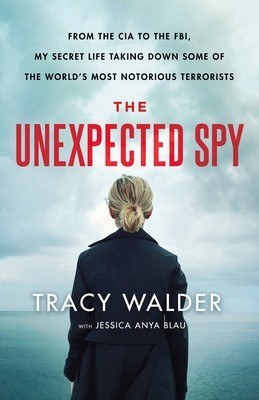Review of "The Unexpected Spy: From the CIA to the FBI, My Secret Life Taking Down Some of the World's Most Notorious Terrorists" on 'Goodreads'
3 stars
Disclosure: This review is written to avoid giving out spoilers so if a couple of words have been replaced with underscores it's to avoid potential spoilers.
The book doesn't reveal any big juicy secrets as it was reviewed by the CIA before it came out (unlike [b:Permanent Record|46223297|Permanent Record|Edward Snowden|https://i.gr-assets.com/images/S/compressed.photo.goodreads.com/books/1564666396l/46223297.SY75.jpg|71198843] by Edward Snowden), which also means that there are parts of the book that are censored. The author decided to keep the censored parts in (just with think black bars over them) which I think was a mistake. The censored parts took away parts of the book and made some parts hard to understand, and I wish the author had rewritten those parts (then of course got that reviewed by the CIA) so that the reader could understand those parts more.
In my copy of the eBook I found some of the censored parts had different words on top of them. I'm not sure if it just my copy or they did it to deter you from trying to read the censored parts. The words that were over top didn't make any sense which makes me believe it was done on purpose.
There are certain time frames that I wish the author would have written about but didn't, for example between the time she gets the job offer and her start time at the CIA (which isn't a spoiler because the description of the book mentions she worked for the CIA).
I do like the author mentions about what life was like at the CIA,
"And they’re not allowed to ask questions, not even a name, of their customers. This was a problem for Starbucks employees who wanted to put names on the cups. What they didn’t understand was that, for undercover operatives, even if you’re giving a false name, you feel vulnerable. Who knows how a fake name—let’s say you use your grandmother’s maiden name—could be traced back to you? Even a random number could be linked to your true identity. So there were no names, not even aliases. And conversation never revolved around work."
"I’d been exceedingly cautious, as I didn’t want anything on me that might reveal my real address or details about my life in Virginia. Not even a gym membership card, or a receipt for granola from Whole Foods. The less information anyone had about me, the safer I was."
"Most of our successes were kept secret. This was fine by me.", "I started making a mental list: all the poison plots and bombing plots the CIA had stopped. Operations that the public never had and never would hear about. It was enough for me to know about them. I didn’t feel the need to prove anything to ."
As well as life when she wasn't working, "I’d eat in front of the TV, watching the most shallow, materialistic, consumer-obsessed reality show I could find. Turned out that once I was living the news—thinking, dreaming, working, and creating it—I just couldn’t bear to watch it on TV."
The author gives a great description of clearance levels within the CIA, "I’m not going to be here, Randy. I’ll be in _. But I can’t tell you, or anyone else, that ___ even exists".
The book could have so many different names, like "No one works on Sunday's: My life at the CIA" but I can see why the author chose the title they did.
I really enjoyed that the last chapter does a recap of the entire book and her life up to that point as a way to close out the book. Overall, if you enjoy read books about spying, FBI, US national security from someone who firmly believes in their mission then read this book.
"My loyalty is to the CIA, the people of the United States, and the safety of the people of the United States. Each sentence in this book was written with that in mind."

